#Annie nightingale
Text
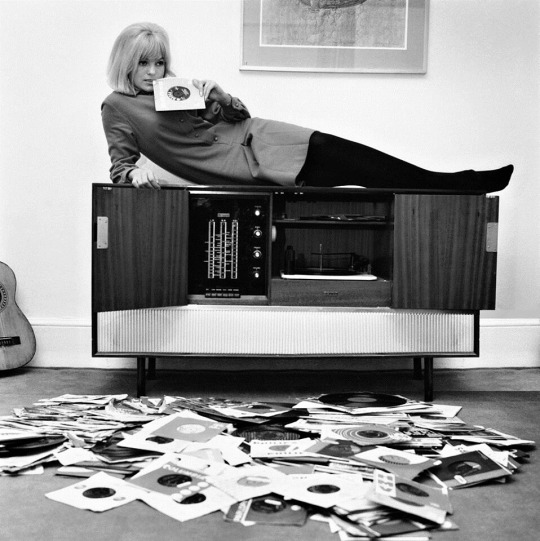
Annie Nightingale
190 notes
·
View notes
Text

"| was very sad to hear that my friend Annie Nightingale passed away last week. She was such a special woman, full of knowledge about the music scene, with a great spirit and a fabulous sense of humour. Having known her for many years, we both watched the music scene change and develop. I was always pleased to meet up with her for an interview or a cup of tea. She will be missed by many people, and the music world will be poorer without her⭐️💐⭐️
Love to her family from me and my family." - Paul⭐️
Via @paulmccartney on Instagram💐
33 notes
·
View notes
Text
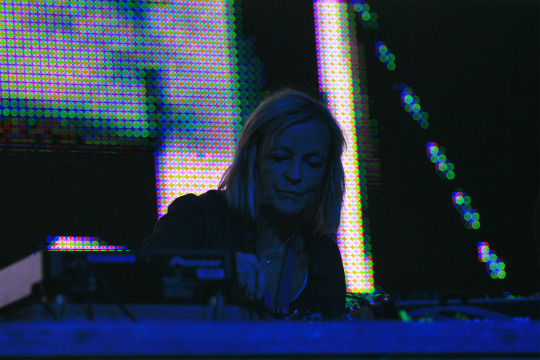
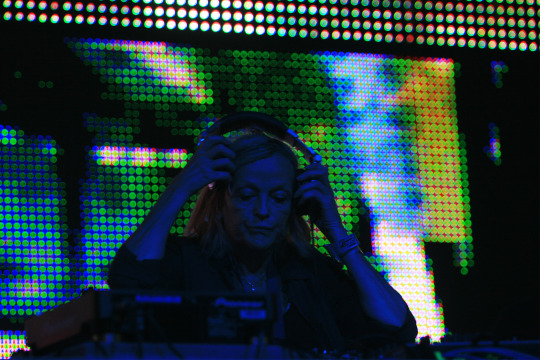


Annie (1940-2024) at the Sziget Festival, Budapest, 2007
(photo: me)
35 notes
·
View notes
Text
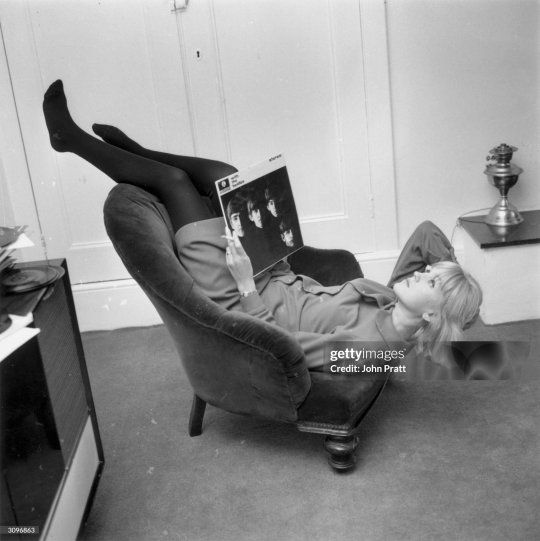
Photo by John Pratt/Keystone Features/Getty Images.
Rest in peace, radio and television presenter Annie Nightingale. Condolences to her family and friends.
Annie Nightingale: “Well, he [George] was both — I mean have Hare Krishna people come in the office, into Apple, chanting, and, yeah, he was very genuinely involved in [spirituality] and believed in it. And Transcendental Meditation. Obviously his whole connection with the Maharishi and the whole experience with the Eastern — and looking for other cultures to be inspired by was very clear, but George was a very complex guy [laughs], you know. He’d give as good as he got. I mean he wasn’t… some sort of ethereal creature. He’d tell you what he thought of you. Yeah, and if he didn’t want to do something, he’d say so in you know… in very strong language [laughs] as well. I mean not that — he was always very brilliant to me. In fact, once he said to me — it must’ve been after The Beatles broke up — at a party. He said, ‘You were very good to us,’ and I went, ‘What are you talking about?! Me? You’ve changed my life! You’ve changed the lives of millions of people!’ I mean, maybe I just didn’t slag them off is what he meant, you know. Because the press turned on The Beatles a lot, you know. People don’t realize that now, but they were fighting quite a losing battle a lot of the time. Even early ‘60s, people going, ‘Oh, that “yeah yeah yeah” stuff, it’s all over.’ People were writing them off even after a year or two, and once they made Pepper and gone psychedelic then that really got the media completely riled up. ‘What was that all about?’ And growing their hair, like they looked weird now. They did not look like the mop tops in their nice Cardin jackets.” - BBC Radio 2, September 2019 (x)
#Annie Nightingale#George Harrison#The Beatles#quote#quotes about George#Harrison spirituality#George and fame#1960s#1970s#1980s#1990s#2000s#2010s#harrisonarchive in memoriam#fits queue like a glove
43 notes
·
View notes
Text
"Paul tried to persuade Mary [Hopkin] how easy it would be for her to write her own hit songs. Somewhere in London and I just cannot remember where, I watched as Paul said to Mary, 'Look, it's easy.' He flipped open the lid of a grand piano which was conveniently poised on a dais nearby. With his left hand he rumbled out some Jerry Lee Lewis-style boogie chords, and sang:
'Ahhh, the big black piano is sitting in front of meeeee.'
I can hum the tune to this day.
'You see? He said, turning to us. 'How easy it is to write a song?'
Mary and I, the only people present except Linda, who was snapping away from the back of the room at the pair of them, looked sceptical.
Then I realised that Paul McCartney probably didn't know or realise that not everyone had his facility to compose instant hit pop songs."
Annie Nightingale, Hey Hi Hello: Five Decades of Pop Culture from Britain's First Female DJ
#remembering paul being all 'unless you stop yourself there's no stopping yourself' in get back#when talking to the clapperboard assistant about songwriting#i know he teaches songwriting at lipa and frankly the mind boggles#and i completely believe the piano song tune is an indelible earworm too#annie nightingale#mary hopkin#paul mccartney#linda eastman#linda mccartney
312 notes
·
View notes
Text
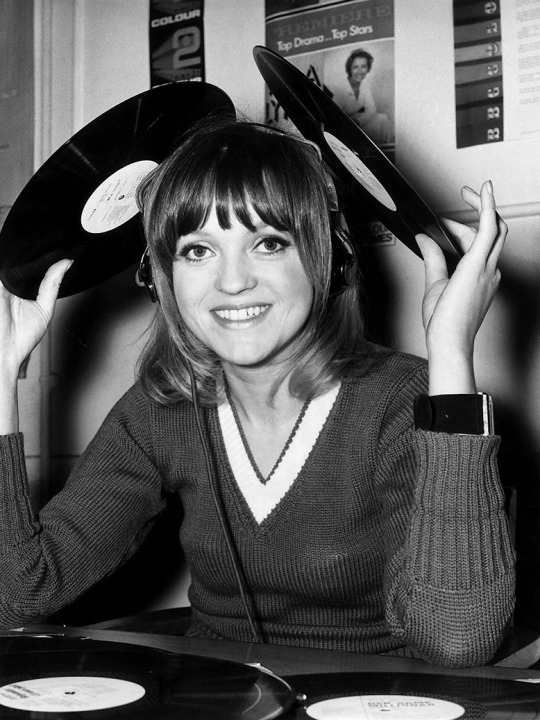
In 1967 when Radio 1 was founded as a successor to the BBC Light Programme, one of its aims was to reach housewives – and to attract them, the station employed only male DJs (or “husband substitutes”, as they were known behind the scenes) for the first three years. It was only in 1970, bending with the times, that it took on its first female presenter, Anne (later Annie) Nightingale, a former journalist and television presenter with almost no radio experience.
The original male presenters have long since left the station, but Nightingale was still working for Radio 1 at the time of her death, aged 83, and had become its longest-serving broadcaster, most recently on air in December 2023. Known to fans as the Queen of Breaks – breakbeat was her specialist genre – she defied the station’s usual career trajectory (five years as a top-tier presenter, then off to weekends or Radio 2) by staying relevant. She introduced listeners to prog rock, punk, indie and dance music, and was unfeignedly passionate about them all. At 75, she told a dance magazine: “I listen to what 13-year-olds listen to because that’s the future. [I’ve] got to be ahead of the game all the time.”
As a dance music specialist from the late 1980s onward – playing “the biggest bass bangers”, as Radio 1’s website put it – Nightingale spent the second half of her career broadcasting to people too young to have known that she had been friends with the Beatles and Marc Bolan. But her age was immaterial because of her stature in the dance world. In 2001, she received Muzik magazine’s Caner of the Year prize in recognition of her late-night lifestyle – her favourite of all her awards, which also included an MBE in 2002 for services to broadcasting (advanced to CBE in 2020), and an honorary doctorate in journalism.
She was a highly knowledgable musical curator, and an expert at exploiting the intimacy of radio. Though Nightingale prioritised music over DJ patter, she recognised that a human voice was still an essential part of the mix; husky-toned and self-deprecating, she belied the station’s early fear that a female DJ would lack authority. According to the writer Irvine Welsh, who listened to her while growing up, her “cool, funky tones” stood out against “the flatulent sounds of loud, boring, thick and egotistical men strafing the airwaves”.
An only child, Nightingale was born in Osterley, west London, to Basil, who ran a wallpaper company, and Celia (nee Winter), a chiropodist. Educated at the independent Lady Eleanor Holles school in Hampton, she left before her A-levels. Overriding her parents’ request that she have “something to fall back on”, she enrolled on a journalism course at the Regent Street Polytechnic (now the University of Westminster). Moving to Brighton after graduation, she married a Fleet Street journalist, Gordon Thomas, and had two children. After a short stint at the Brighton and Hove Gazette, she became the only woman in the newsroom at the Brighton Argus.
Along with reporting local news at the parish-council level, she was given a music column called Spin With Me, which gave her access to the biggest pop stars of the 60s. Her friendship with the Beatles later helped open doors at Radio 1 – the band’s publicist, Derek Taylor, persuaded the station controller to let her audition after her own requests were repeatedly refused.
At a Dusty Springfield gig in 1964, she met Vicki Wickham, producer of Ready Steady Go!, who hired her as co-presenter of a new pop show called That’s For Me. It lasted only a few months, but the exposure led to writing work at the Daily Express and Cosmopolitan, and radio appearances on Today and Woman’s Hour. It was the era of pirate stations such as Radio Caroline; she considered applying to Caroline but was put off by the idea of “living out at sea with a bunch of blokes”.
Finally installed at Radio 1 in 1970, she was hampered at first by a lack of technical knowhow – her first day was marked by eight seconds of dead airtime when she accidentally pressed the “off” switch in the middle of a record. Yet she quickly established herself, choosing her own playlist almost from the start. Her skill at persuading listeners that what she wanted to hear was what they wanted to hear led in 1978 to the job of presenting BBC Two’s “serious” rock programme, The Old Grey Whistle Test. It had failed to keep up with musical fashion, a problem she tackled by booking the most challenging artists she could get away with and braving the consequences. She was delighted to bag Public Image Ltd for a live appearance, though frontman John Lydon repaid her enthusiasm by admonishing her for being “so fucking patronising”.
Four years at Whistle Test were followed by a return to Radio 1’s highly popular Sunday afternoon request show for 12 years. When acid house gained traction in the late 80s, she credited it with changing her life; from that point, she played solely dance music on Radio 1, first in the influential Chill Out Zone slot, then on a longstanding programme that went out at 1am on Wednesdays. Her free time, she said, was consumed by listening to the thousands of demo tapes she received every week.
Despite her achievements, Nightingale claimed she lacked confidence until she was robbed in Havana, Cuba in 1996. The attack left her unable to walk for months, but made her “a stronger person”, she said.
Though she hated nostalgia, she did reflect that ageing had been isolating. The death of John Peel, her friend from the early days of Radio 1, provoked the unusually downbeat comment: “Now John’s gone there’s nobody I know in my age group who remotely likes this kind of thing. I don’t understand why. I’m driven by it.”
She published two volumes of autobiography, Chase the Fade (1982) and Wicked Speed (2000), and a 50th-anniversary volume, Hey Hi Hello: Five Decades of Pop Culture from Britain’s First Female DJ, in 2020.
She is survived by her children, Alex and Lucy, from her first marriage, which ended in divorce. Her second marriage, to the actor Binky Baker in 1978, also ended in divorce.
🔔 Anne Avril Nightingale, broadcaster, born 1 April 1940; died 11 January 2024
Daily inspiration. Discover more photos at Just for Books…?
13 notes
·
View notes
Text

R.I.P Annie
8 notes
·
View notes
Text
9 notes
·
View notes
Text

Annie Nightingale
5 notes
·
View notes
Text
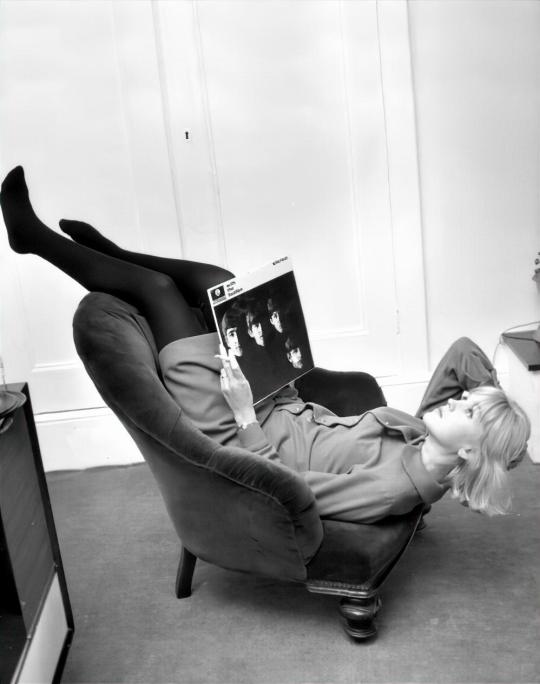
Annie Nightingale en 1964.
Elle fut la première DJ femme sur BBC Radio 1.
143 notes
·
View notes
Text

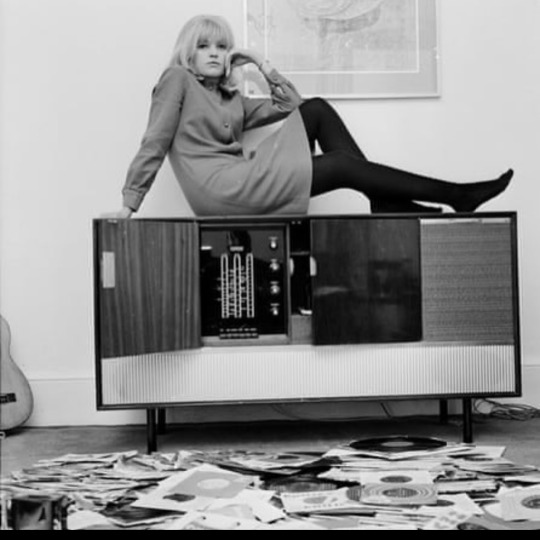
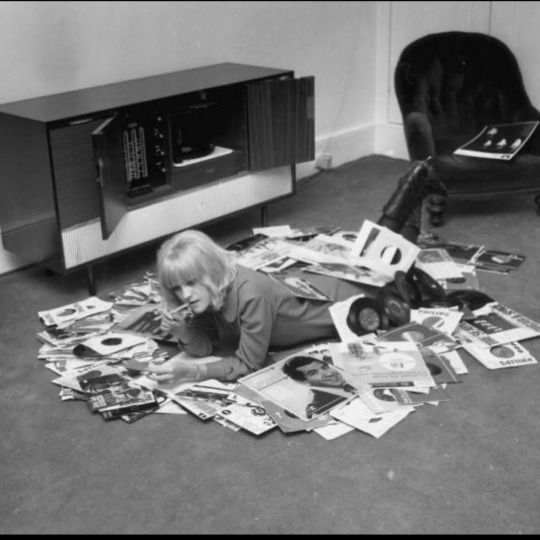
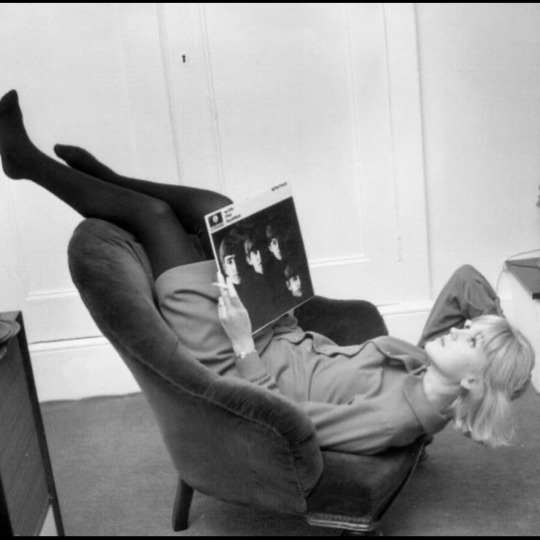
RIP Annie Nightingale, who passed away on the 11th of January, 2024🌷🌷🌷
Via @groovysixties on Instagram🌷
7 notes
·
View notes
Text

R.I.P. Annie Nightingale
A Radio 1 mainstay growing up. The first woman to have her own radio show in the UK, broadcasting since 1970 right up until December of last year. Still curating the hardest dancefloor mixes into her 80s. Legend.
4 notes
·
View notes
Text
BBC News: Annie Nightingale: Trailblazing Radio 1 DJ dies
BBC News - Annie Nightingale: Trailblazing Radio 1 DJ dies
Such a shame. She was the best friend of my University landlady and I met her a couple of times. You'd be hard pressed to find anyone as passionate about music and inspiring to young women.
5 notes
·
View notes
Text
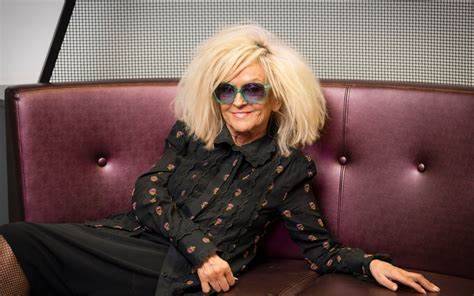
ANNIE NIGHTINGALE (1940-Died January 11th 2024,at 83).English radio and television broadcaster. She was the first female presenter on BBC Radio 1 in 1970 and the first female presenter for BBC Television's The Old Grey Whistle Test where she stayed for eleven years.
Nightingale specialised in championing new and underground music, she also led the movement and encouraged other women to become DJs and broadcasters. She was BBC Radio 1's longest serving broadcaster and held the Guinness World Record for the longest career as a female radio presenter.Annie Nightingale - Wikipedia
#Annie nightingale#English Radio Presenters#English Television presenters#British Radio Presenters#British Broadcasters#broadcasters#Radio Presenters#Television Presenters#The Old Grey Whistle Test#Notable Deaths in January 2024#Notable Deaths in 2024
2 notes
·
View notes